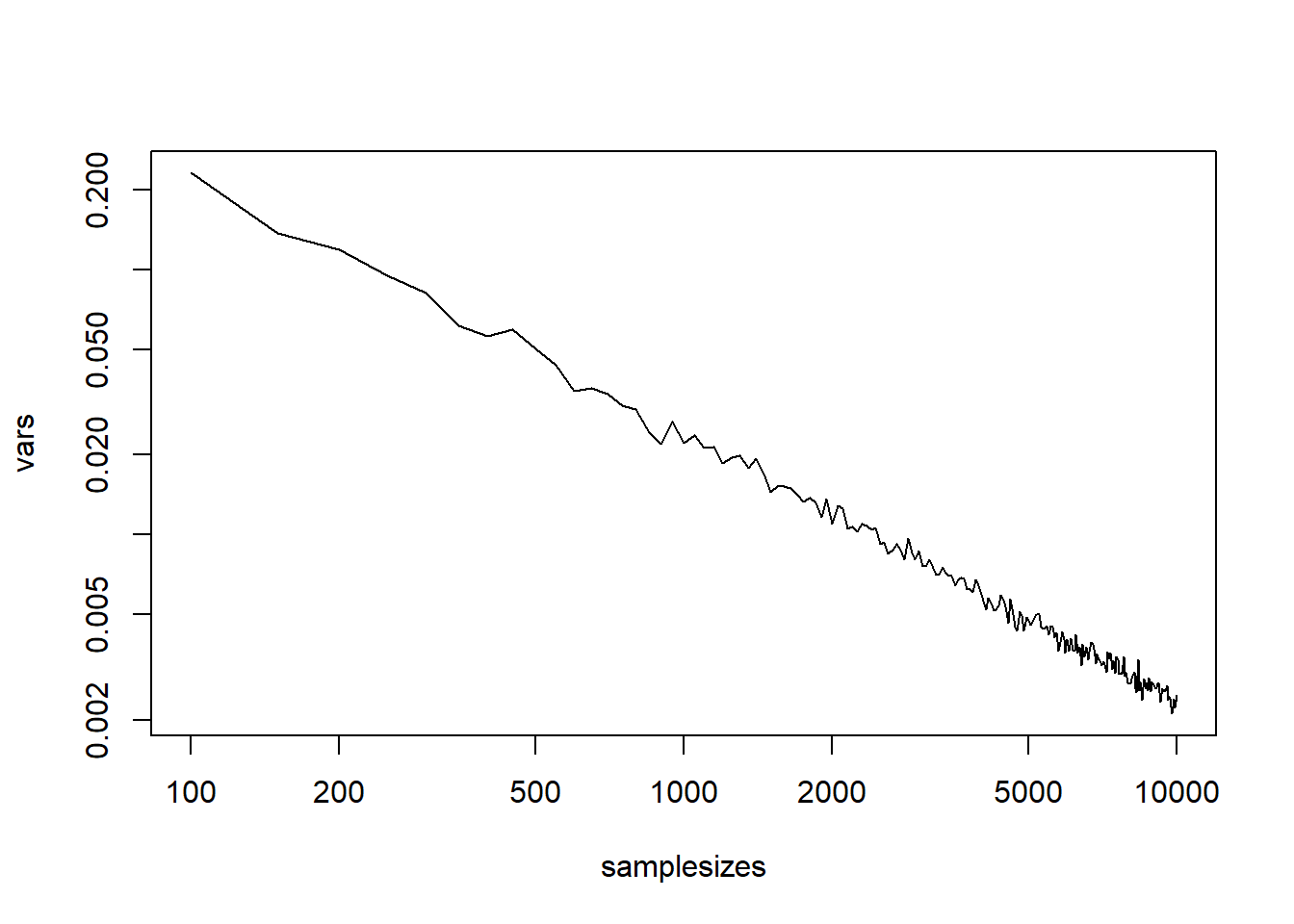Kurtosis
First we define the sample kurtosis function, as well as a matrix version.
Source: Wikipedia
kurtosis1 <- function(x) {
xstand <- x - mean(x)
kurt <- (mean((xstand)^4))/((mean((xstand)^2))^2)
return(kurt)
}
kurtosis <- function(X) { apply(X,2,kurtosis1) }Generate samples
We select the range of sample sizes and generate a matrix of samples arranged in columns, for each size.
samplesizes <- seq(minsize<-100,maxsize<-10000,stepsize<-50)
nsizes <- length(samplesizes)
nsample.persize <- 500
samples <- vector('list',nsizes)
for (i in 1:nsizes) {
samples[[i]] <- matrix(rnorm(samplesizes[i]*nsample.persize),samplesizes[i])
}We used 500 samples of each size ranging from 100 to 10000 in steps of 50.
Calculate Kurtosis
We use parallel processing to speed up the computation. Set cluster size to number of available cores.
library(parallel)
cl <- makeCluster(4)
nul <- clusterExport(cl,c('kurtosis1','kurtosis'))
system.time({
outputs <- parLapply(cl,samples,kurtosis)
})## user system elapsed
## 4.83 12.77 37.06stopCluster(cl)Variances
We calculate the variance for each sample size and do a regression on the results.
vars <- unlist(lapply(outputs,var))
lvars <- log(vars); logn <- log(samplesizes)
summary(m1 <- lm(lvars~logn))##
## Call:
## lm(formula = lvars ~ logn)
##
## Residuals:
## Min 1Q Median 3Q Max
## -0.180953 -0.043097 0.003116 0.044296 0.166688
##
## Coefficients:
## Estimate Std. Error t value Pr(>|t|)
## (Intercept) 3.141518 0.042761 73.47 <0.0000000000000002 ***
## logn -0.996792 0.005152 -193.46 <0.0000000000000002 ***
## ---
## Signif. codes: 0 '***' 0.001 '**' 0.01 '*' 0.05 '.' 0.1 ' ' 1
##
## Residual standard error: 0.06569 on 197 degrees of freedom
## Multiple R-squared: 0.9948, Adjusted R-squared: 0.9947
## F-statistic: 3.743e+04 on 1 and 197 DF, p-value: < 0.00000000000000022b0 <- exp(coef(m1)[1])
plot(samplesizes,vars,type='l',log='xy')
The regression seems good.
Conclusion
The final estimated formula is \(v\approx\) 23.1389604 \(n^{-0.9967917}\).
Thus it is clear that the formula suggested on Wikipedia is correct.
That is \(v\approx \frac{24n(n-1)^2}{(n-3)(n-2)(n+3)(n+5)}\).